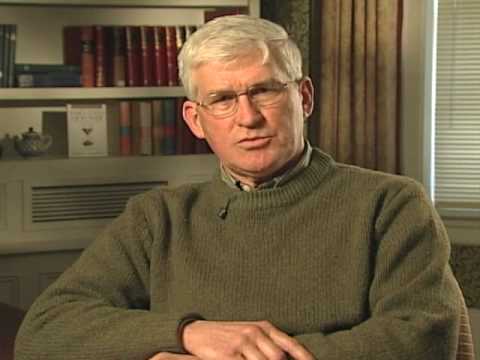Facing the Truth About Our Militarized Foreign Policy

Andrew Bacevich considers the example of Eugene Genovese’s opposition to the Vietnam War and what it can teach us about our disastrous and destructive policies overseas:
Sober analysis devoid of moral posturing back in 1965 would have allowed policymakers to see that the United States had no vital interests at stake in Vietnam, that that nation’s future was best left to the Vietnamese people to decide. Had President Lyndon Johnson and his advisers taken that view, they would have avoided an epic tragedy. Instead they embarked upon an epic crime.
Sober analysis devoid of moral posturing today should allow policymakers to recognize that the United States has no vital interests in the Greater Middle East. A wise approach to policy will allow the people who live there to decide their futures. Further military meddling by the United States will only kill more people and wreak more havoc without any apparent benefit to anyone.
I do not welcome a victory by the Taliban or ISIS or Iran or any of the entities that comprise Washington’s current unofficial enemies list. But across the Middle East, the United States for decades now has pursued a course that has been criminally reckless and counterproductive.
There is great resistance in the U.S. to the truth that our militarized foreign policy is a destructive force in the world. The story that we have told ourselves for decades is that we have good intentions and that our “leadership” is stabilizing and benevolent. We keep telling ourselves that story in part because the reality of what the U.S. has done to many countries over just the last twenty years is so awful and we don’t want to face up to it. The enormous damage that our militarized foreign policy has done in Iraq, Syria, Libya, Yemen, and Afghanistan will take decades for the people in these countries to recover from, and all of the upheaval, bloodshed, and chaos that our policies caused or contributed to have been for nothing.
The “war on terror” has not lessened the threat from jihadist groups, but instead it has caused these groups to flourish and spread. Defining counter-terrorism as a war not only fails to reduce the threat, but it also guarantees that there can be no end to the war. Policies of regime change haven’t made the U.S. the least bit more secure, but they have kept the U.S. embroiled in regional conflicts for decades at a substantial cost in lives lost and money wasted. Hundreds of thousands of people have been killed and millions more displaced as a result of our habits of exaggerating foreign threats and then overreacting to those threats with heavy-handed, militarized responses. The U.S. did not have to do any of these things, but we have chosen to do them and to keep doing them year after year because we don’t think about all the harm that we are doing to entire nations. Worst of all, many Americans still think that the U.S. has been doing good all this time.
What the story doesn’t tell us is that the pursuit of global “leadership” involves constant interference in the affairs of other nations and a conceit that we have both the right and the responsibility to sanction, bomb, or invade any country if their government doesn’t behave just as we would like them to. It is that conceit that has led to crippling sanctions regimes, overthrowing foreign governments by force, and keeping U.S. troops on foreign soil where they aren’t wanted. Because our government presumes that it knows what is best for other countries, it treats local resistance to our interference as malign, and it treats the entire Middle East as its sphere of influence that it has to “defend” from the people that live there. To make matters worse, none of this has had anything to do with protecting the U.S. It has all been driven by excessive fear, passionate attachments, and inveterate antipathies that have trapped the U.S. in a prison of our own making. If we want to stop these senseless policies, we need to reject the assumptions that lead to them. The first step in breaking out of that prison is to recognize that the U.S. does not need our militarized foreign policy to be secure, and that our militarized foreign policy is a disaster both for our country and for all the countries where it is practiced.
Comments